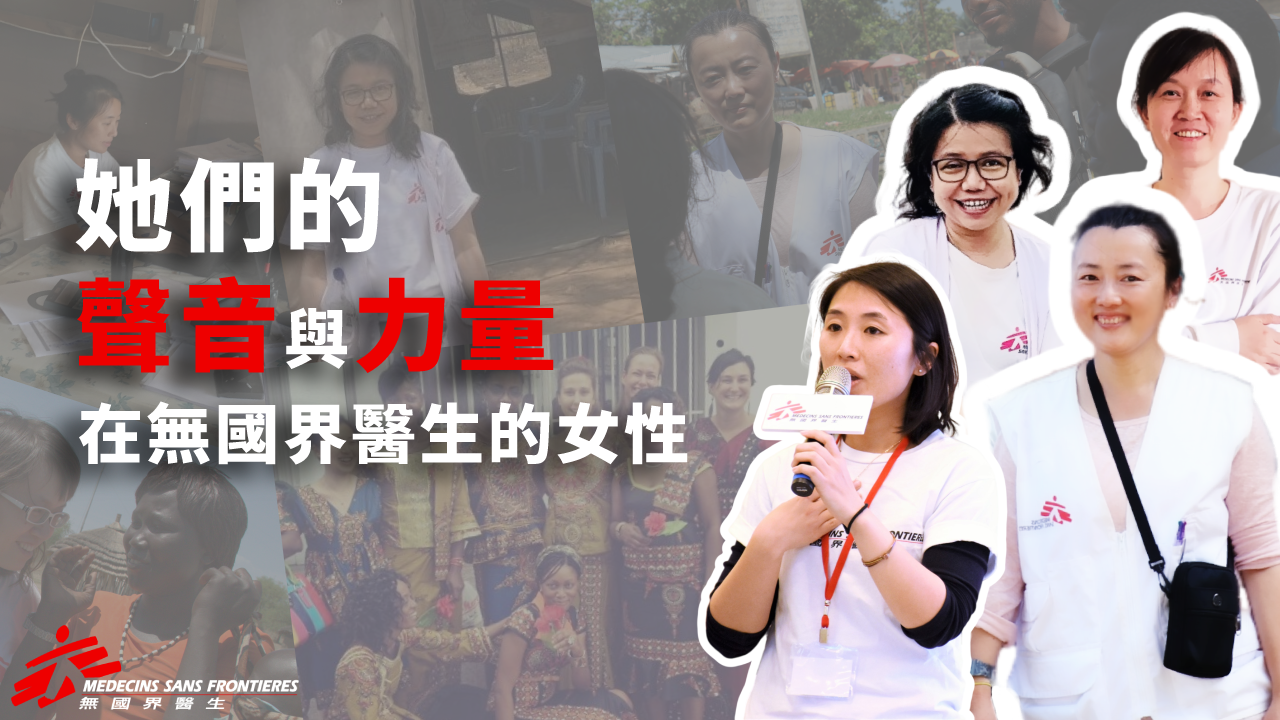Living in South Sudan

May 11, 2015
One question I often get asked is what kind of daily life MSF doctors lead. I guess it really depends upon the mission nature and location. Generally speaking, the living conditions in high security contexts are relatively better, but as access is strictly limited to hospital and shelter, it is at the cost of freedom. If the living area is inside the hospital compound, it means you have to be grounded for a certain period and you cannot step outside of the hospital. This type of “jail-like” experience is definitely intolerable. For South Sudan, where I am now, the safety condition is relatively better; hence the mobility is also higher. Yet the living conditions can be quite disappointing.
Speaking of this current mission in South Sudan, I can share with you my experience. We do all the laundry on our own, but the clothes, after sun drying for a whole day, will be covered with sand and dust, which is quite frustrating. In terms of food, we often have dough (which the Africans love), some rice and meat. Vegetables and fruits are considered to be luxury items here. Tastiness is not important as food here is primarily for feeding the hunger, particularly for those who are starving. Having said that, the food hygiene has to be improved! There is more than once I witnessed the chef picking up the food that dropped onto the floor and put it back to the cooking pot. We try to accept that and tell ourselves, “out of sight, out of mind”. It seems that every single expatriate in the mission has experienced diarrhea for a period of time, no exceptions!
For the shelters, we live in little huts that are called Tukul. The temperature can be very high during the day hence no one would stay inside. It can get worse after sandstorms and rainstorms.
One of my responsibilities in this mission is to train the doctors in a local hospital by giving surgery demonstration. Even though the hospital is not very far away, the journey is full of dust and sand, and the road is so rugged and bumpy which make me feel like I am on some amusement rides. Usually when we get off, we have grease and dust all over our bodies and faces.
And I think the worst of all is the toilet. Actually it is more accurate to describe it as a latrine. It is advised not to look down into the latrine (like for the mountain hikers who are afraid of heights), otherwise you will slam the door and run. If you look down, you will see thousands of cockroaches underneath which may climb up silently on to your feet and even sensitive areas. Thus, latrine is definitely not a place for long stay!
Though where I am working in is not a high security context, I have experienced here grenade explosions and shootings from the nearest distance ever. One Saturday, while the team was chilling, we suddenly heard two gun shots from areas outside the fence. Shortly after, there was a big bomb and a few more gun shots. Not everyone in the team has experienced something like this, so some members asked what happened. I immediately sent them to a safe spot and also told them we would have wounded coming to our hospital soon. I then got the emergency room prepared together with the anesthetist. An injured person came in less than 15 minutes.
Fortunately, his condition was stable. After a comprehensive examination, it is found his left chest on the back had a 1cm-diameter wound. Clinically he has left pneumothorax and hemothorax, but the rest of the examination said he was normal.
It was later found that he is a local law enforcement officer, and was injured when trying to catch a criminal with his colleague. The location was less than 500 meters away from our hospital. As the criminal refused to be arrested, he fired some warning shots in the sky, but the criminal pulled out the grenade. As the officer could not escape in time, his back was injured by the grenade fragments. Fortunately, the criminal got arrested and there was only one person injured.
Normally speaking, when the patient is pierced by a foreign body, he or she must take X-ray examination in order to estimate the path of the object. However since we do not have X-ray machine here, all the conditions have to be determined by clinical experience. As his vital measures remained stable while there were also no signs of peritonitis, I only put in a chest drain for the drainage of pneumothorax and hemothorax. It is often not worth to cut open the chest to remove a foreign body, as the operative risk is very much higher, except for cases of complications like bleeding and infections. I removed the drain as his condition remained stable after a few days, and then he was discharged home uneventfully.
These kinds of living and safety conditions could hardly meet the basic standards. For the expatriate team here, it is just a temporary stay and we all have our return dates to our home countries. Yet for the locals, it is a different story and I wonder how much longer it takes for their living conditions to be truly improved. We sincerely hope in the near future, the local living condition and the medical standard can both be raised, such that the MSF team can leave South Sudan forever. This is always the ultimate goal of all MSF projects, all around the world.






Leave a Comment